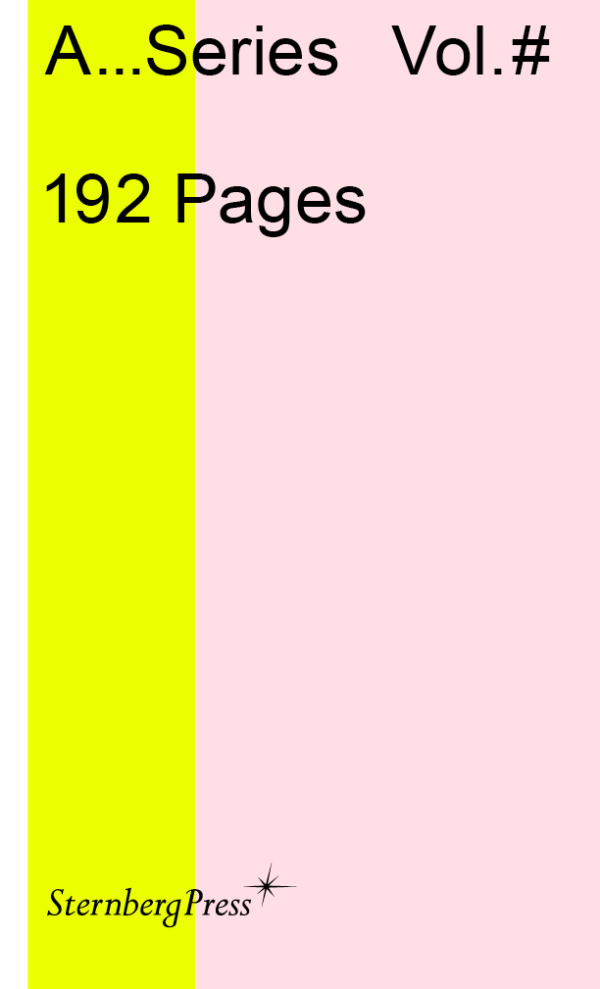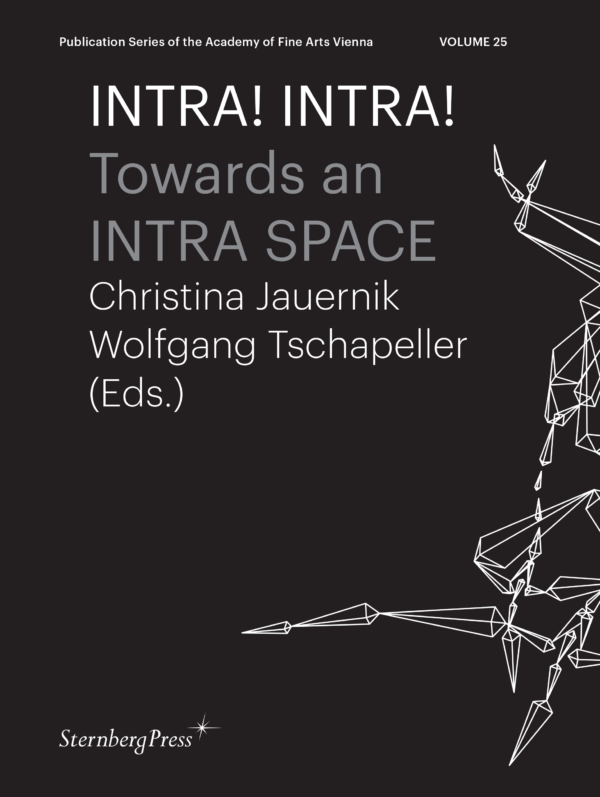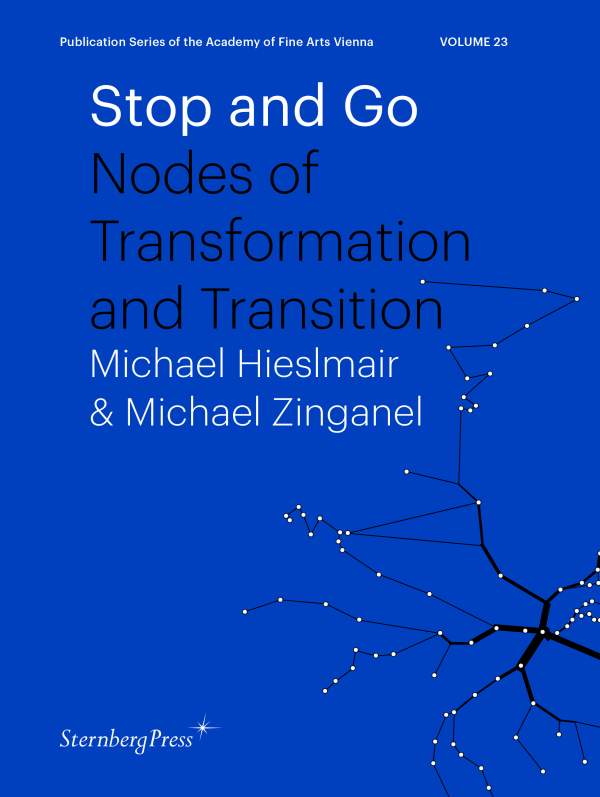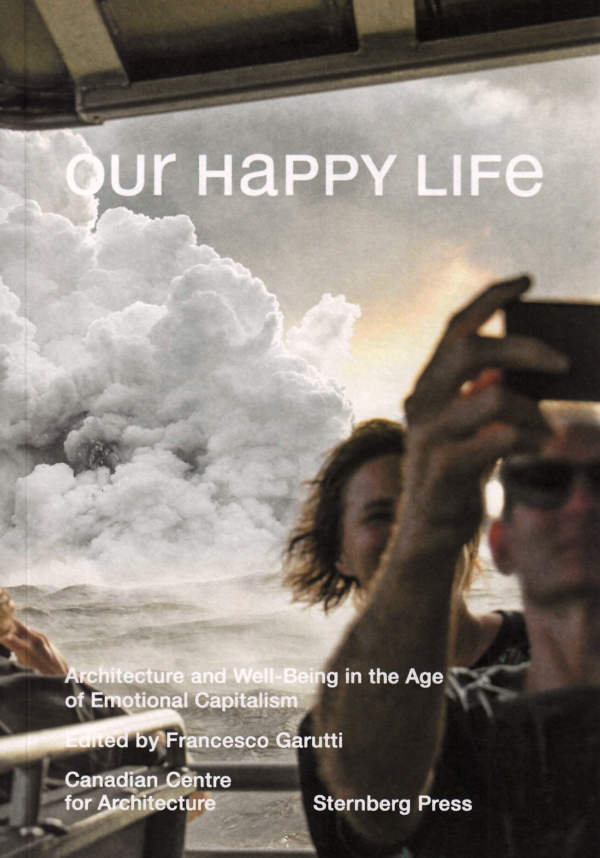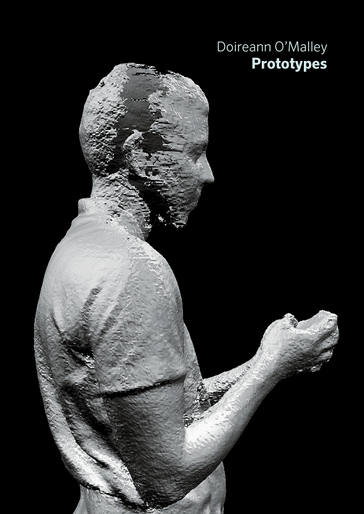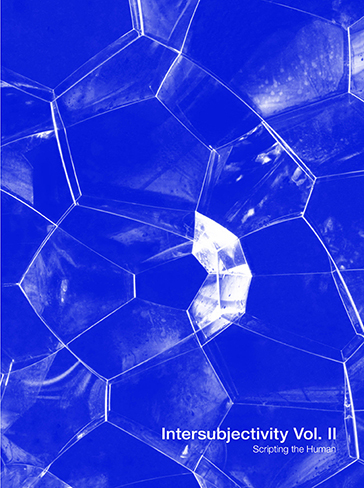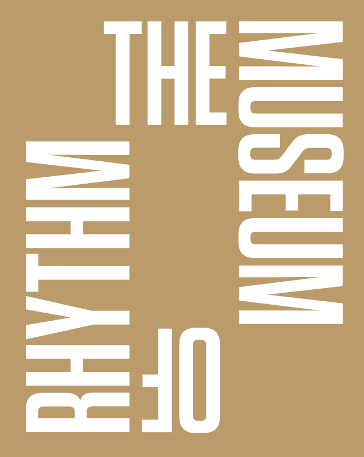Your cart is currently empty.
Cart
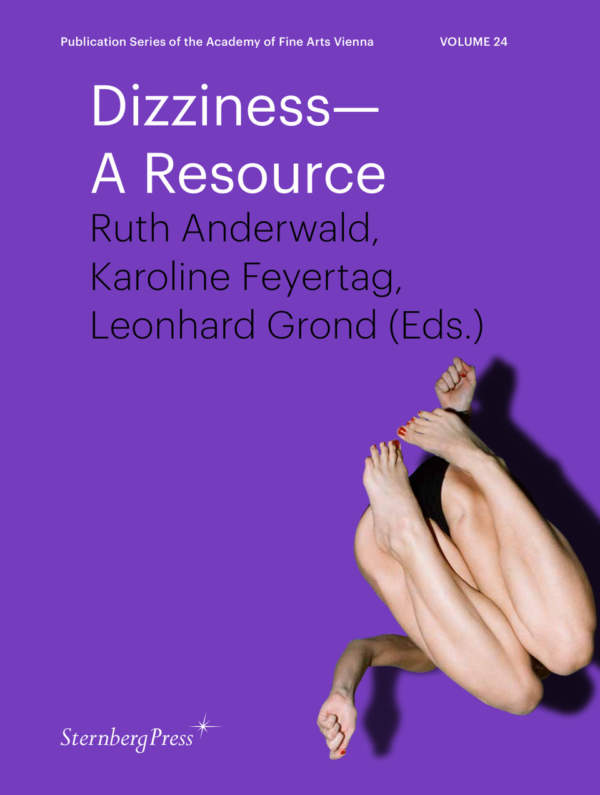
Dizziness—A Resource
Texts by Ruth Anderwald, Mathias Benedek, Oliver A. I. Botar, Davide Deriu, Karoline Feyertag, Leonhard Grond, François Jullien, Sarah Kolb, Rebekka Ladewig, Jarosław Lubiak, Alice Pechriggl, Oliver Ressler, Maya M. Shmailov, Maria Spindler, Marcus Steinweg, Katrin Bucher Trantow
Dizziness is more than feeling dizzy. In this multidisciplinary reader, artists, philosophers, and researchers from a range of experimental sciences and cultural studies trace dizziness not only as a phenomenon of sensory input impacting our vestibular system, but also as a twofold phenomenon of “sense”—creating meaning and triggering emotions. It is an interdependence of sense and sensing, of cultural constructs and sensuality, of somatic and cognitive knowledge, that can only be conceived of as a complex relation of both formation and dissolution, habituations and transformations, pertaining to our shared reality and our individual experiences. This is further reflected in the programmatic claim that states of dizziness can be seen as a resource.
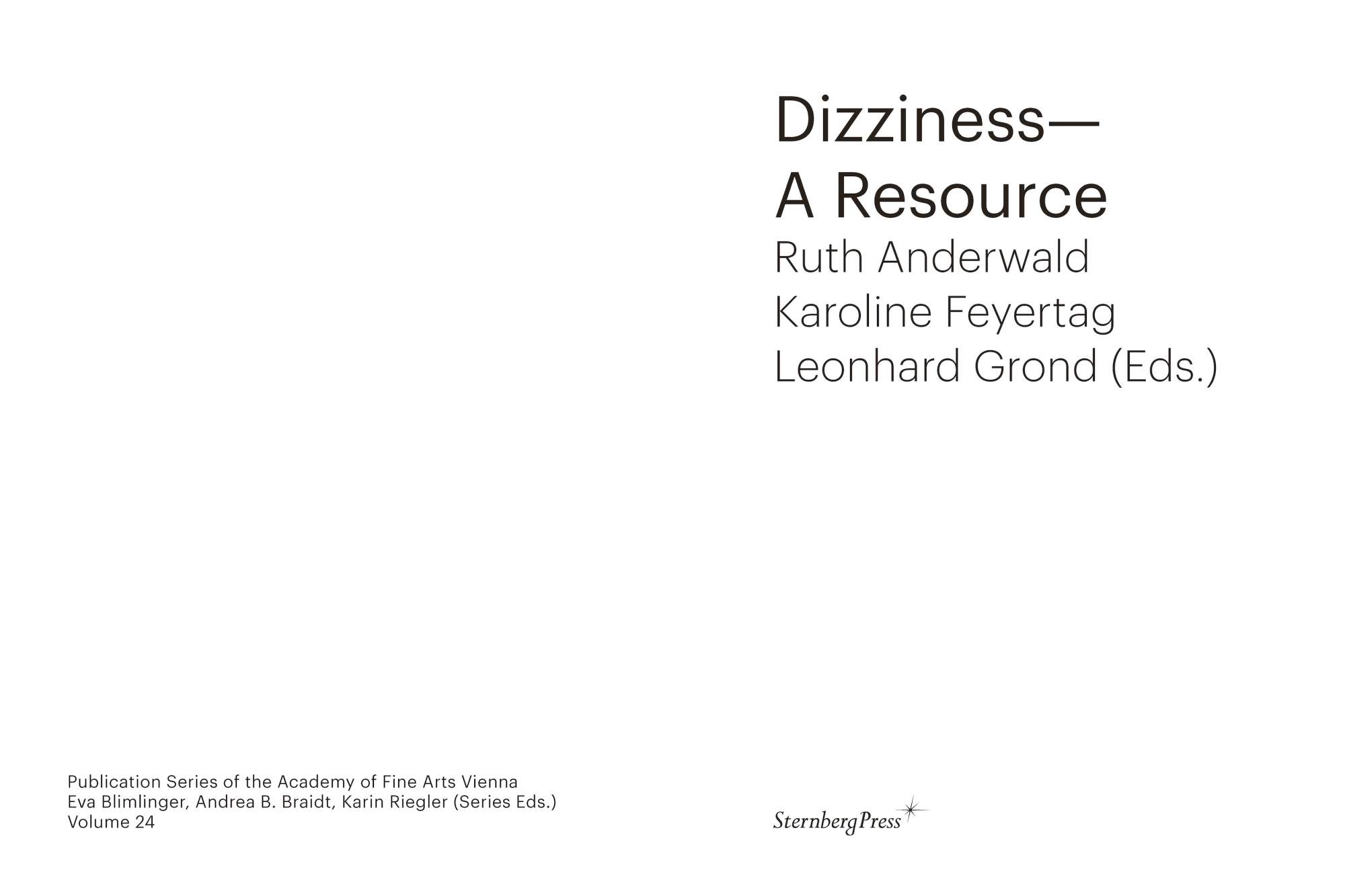
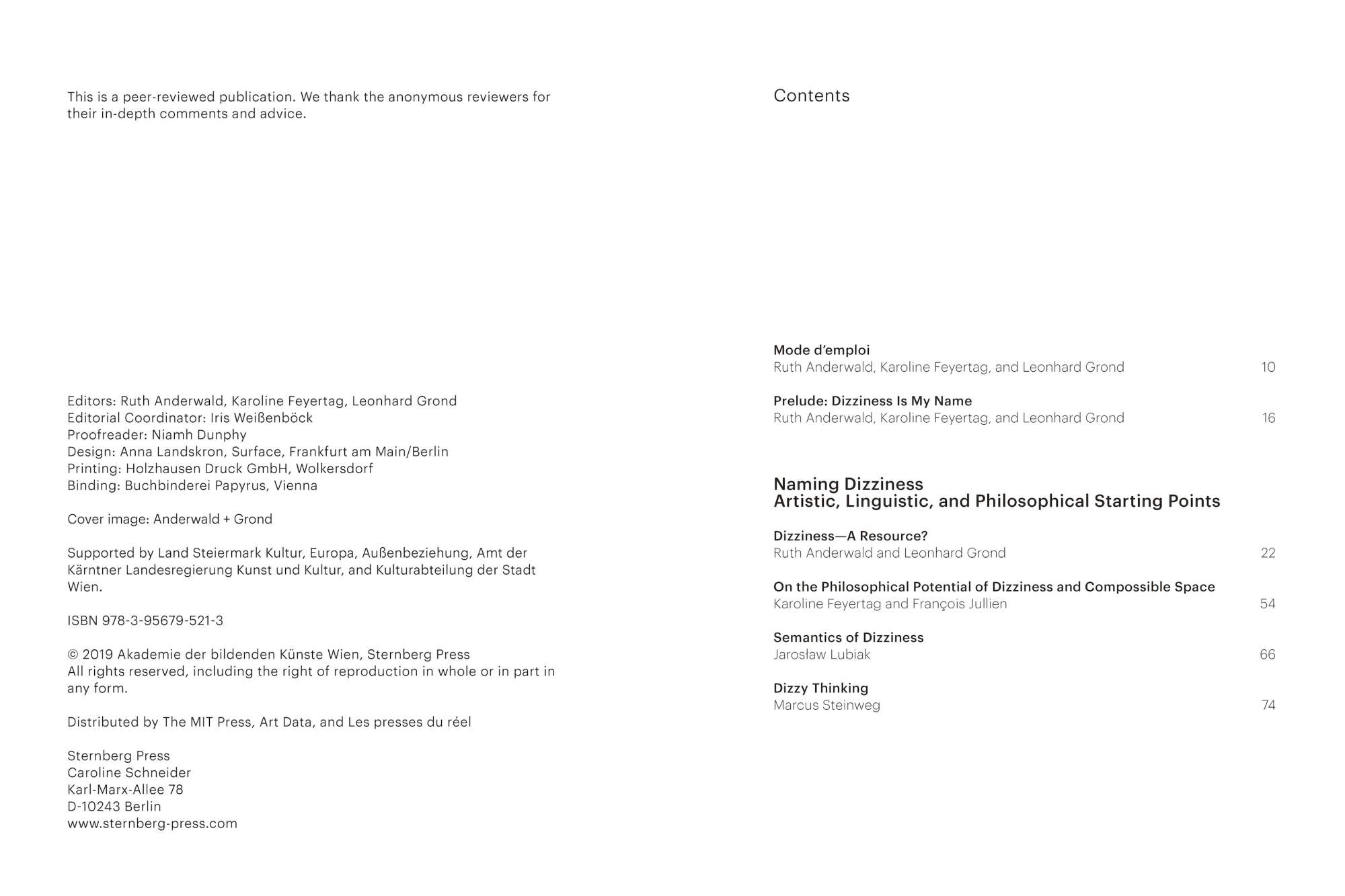
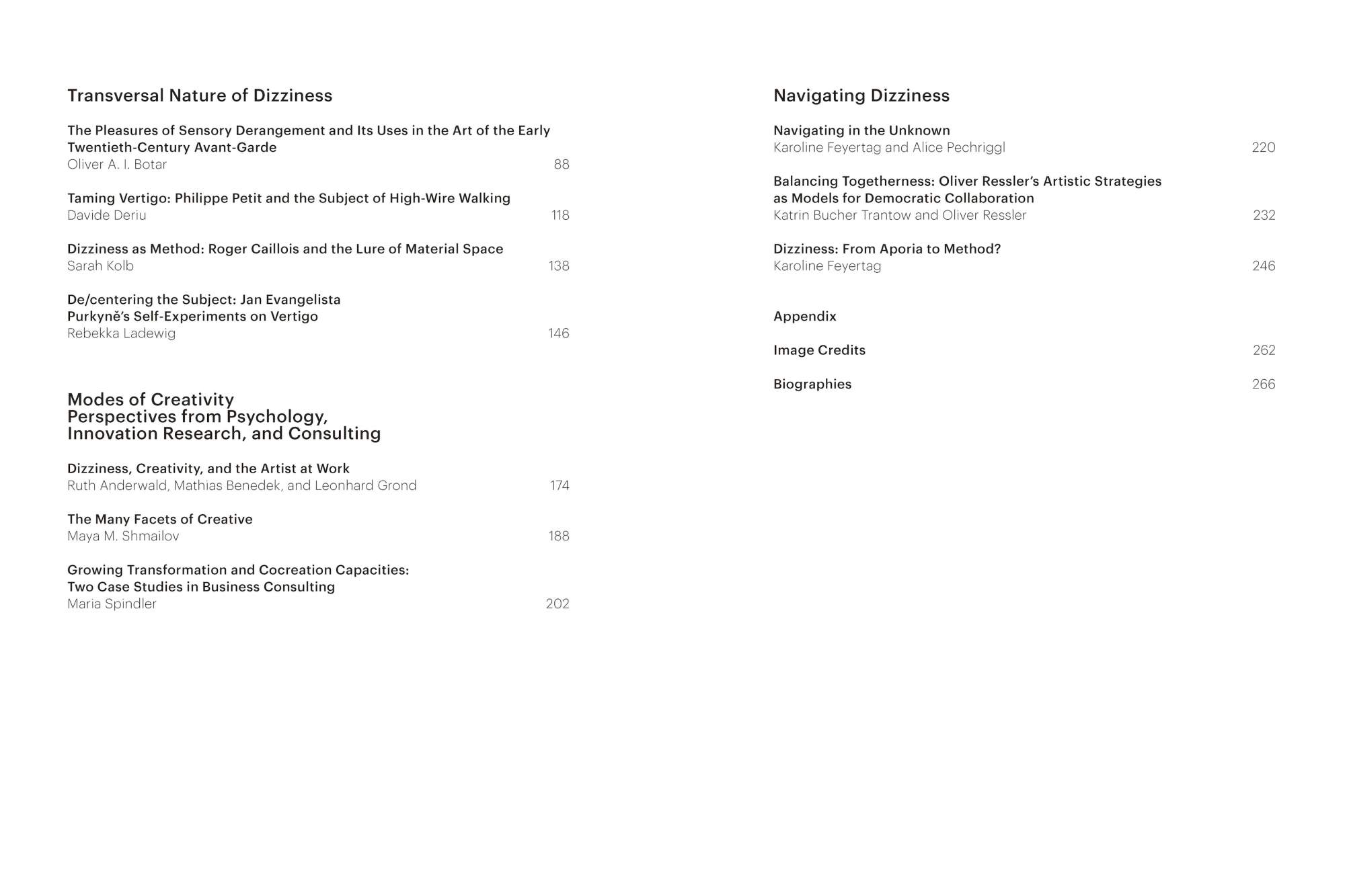
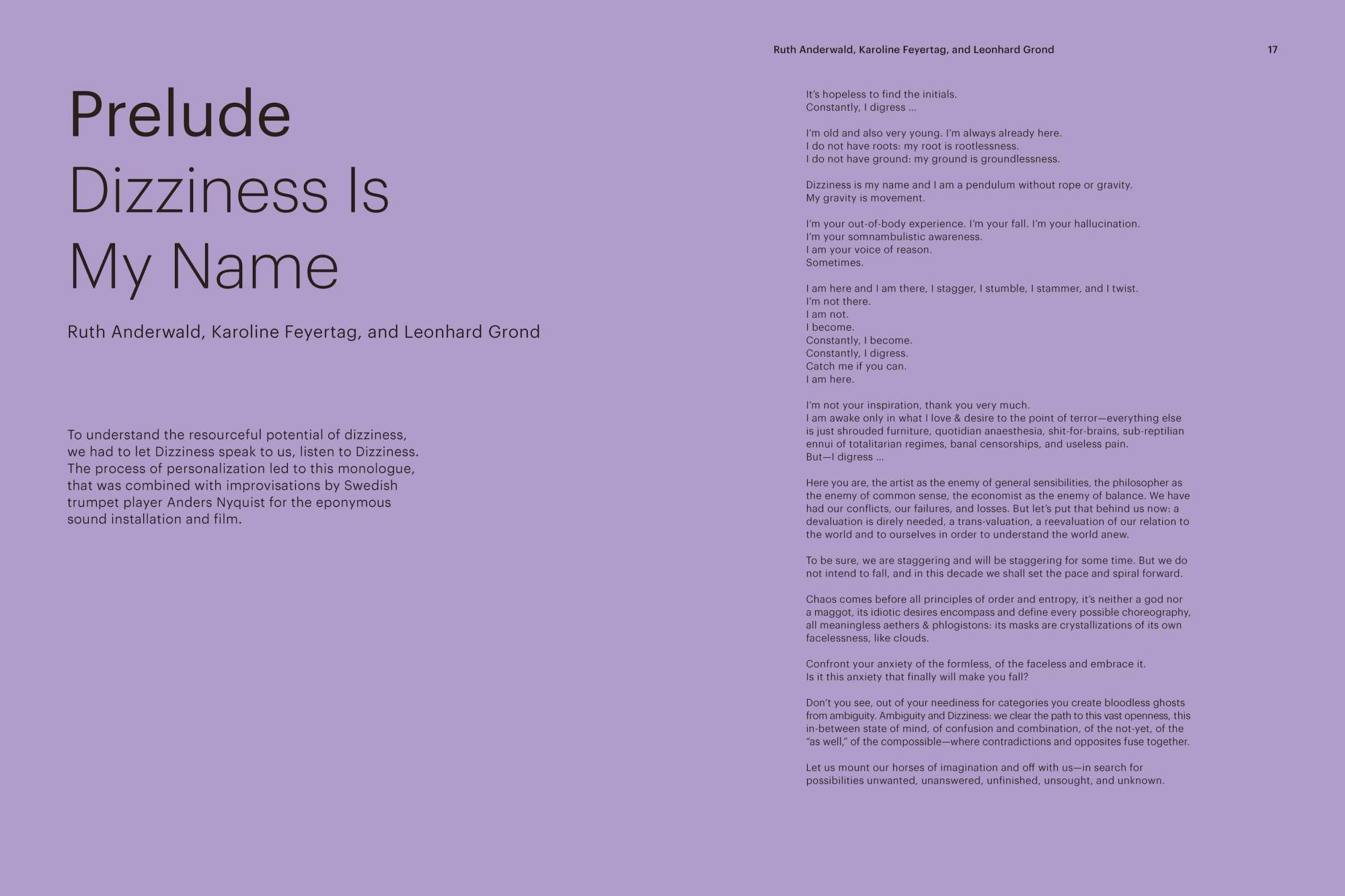
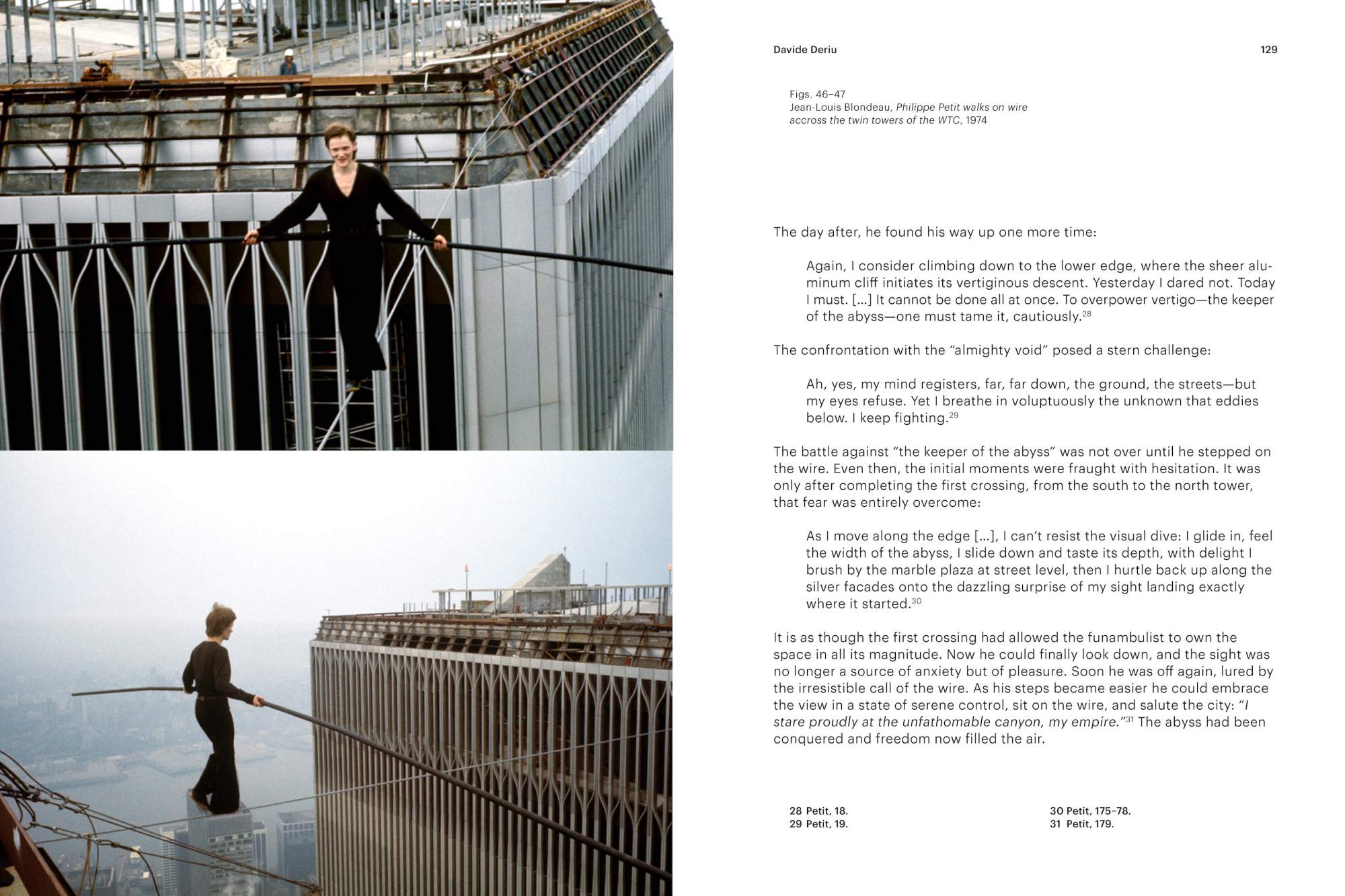
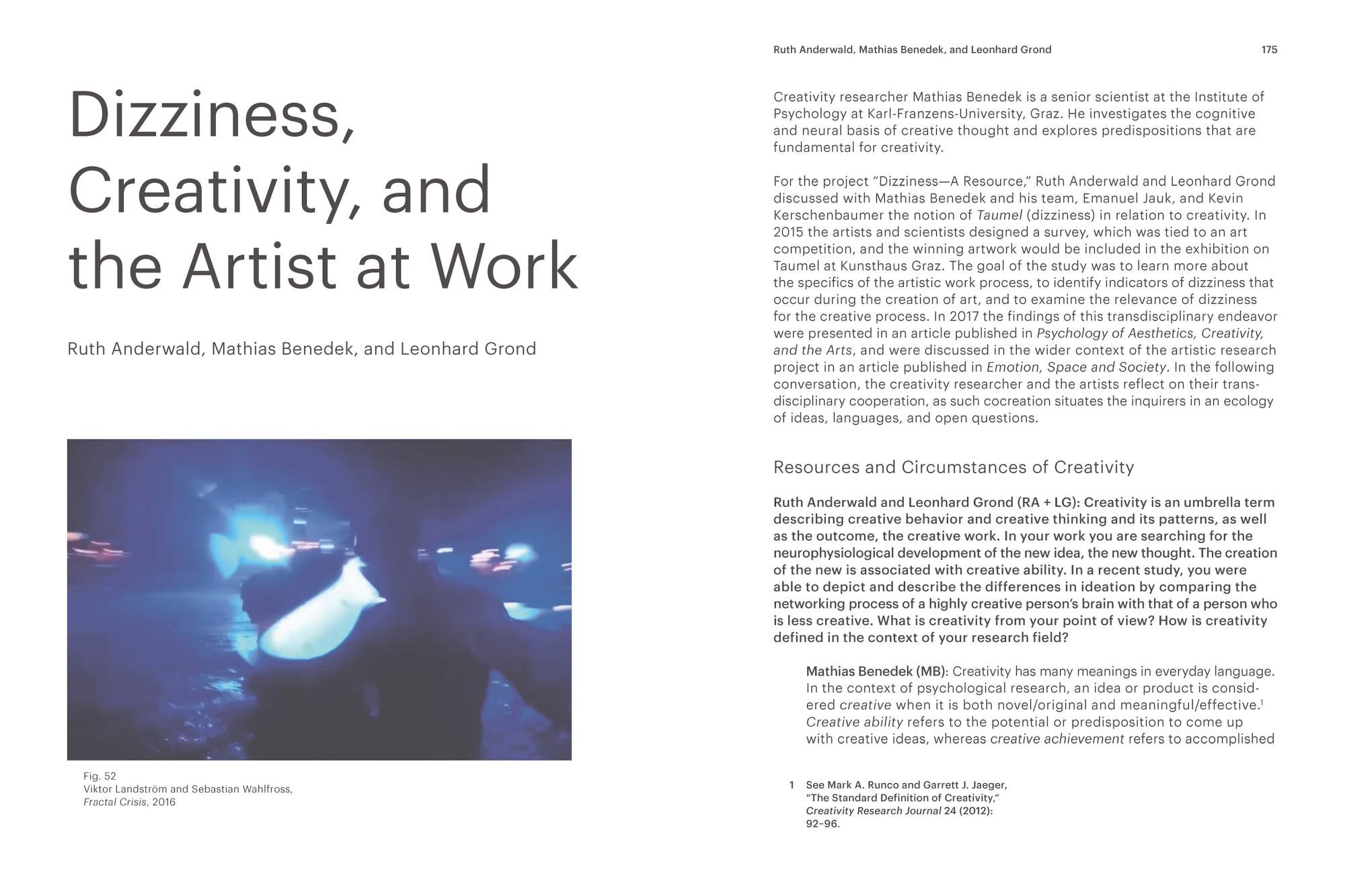
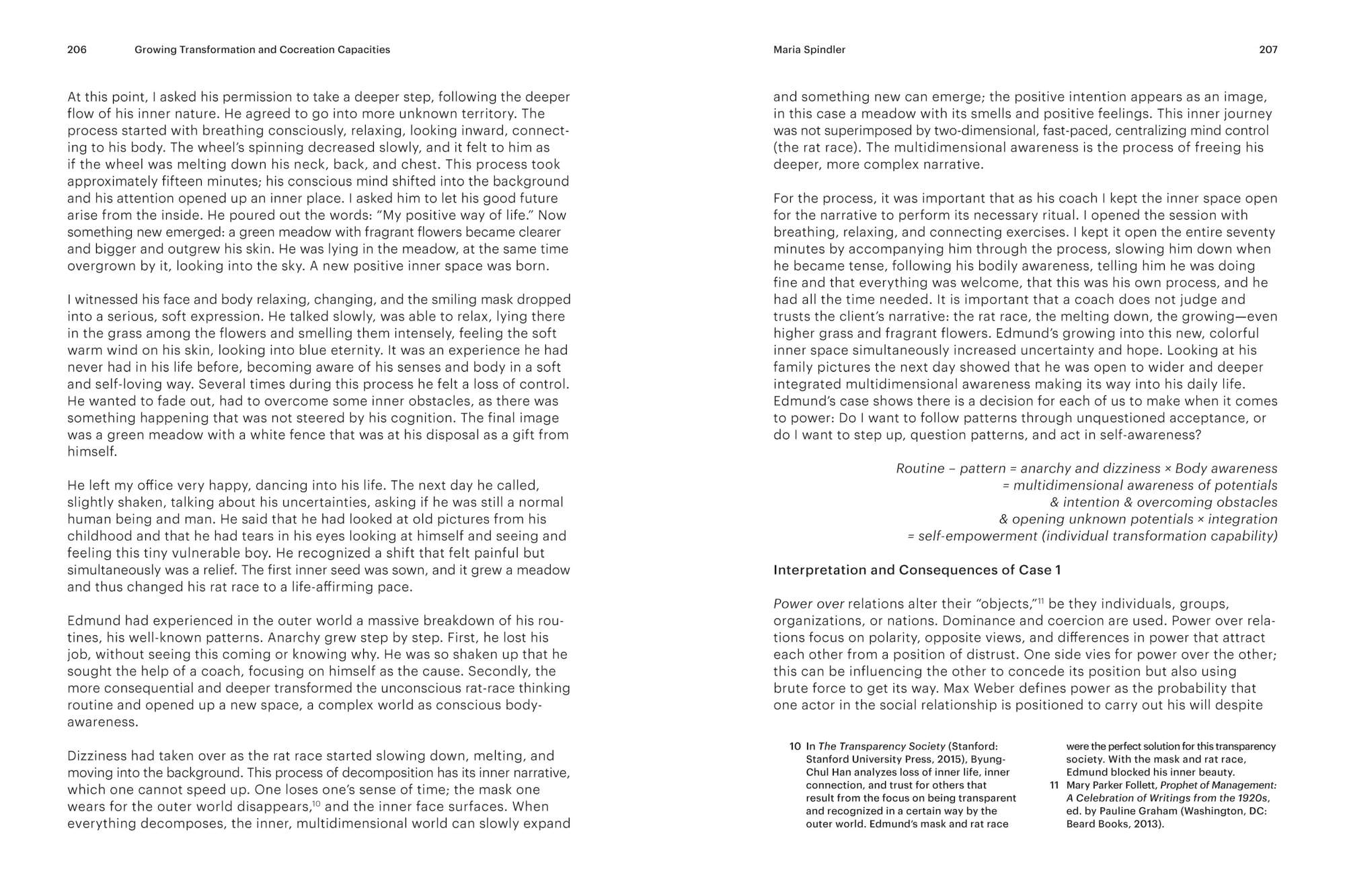
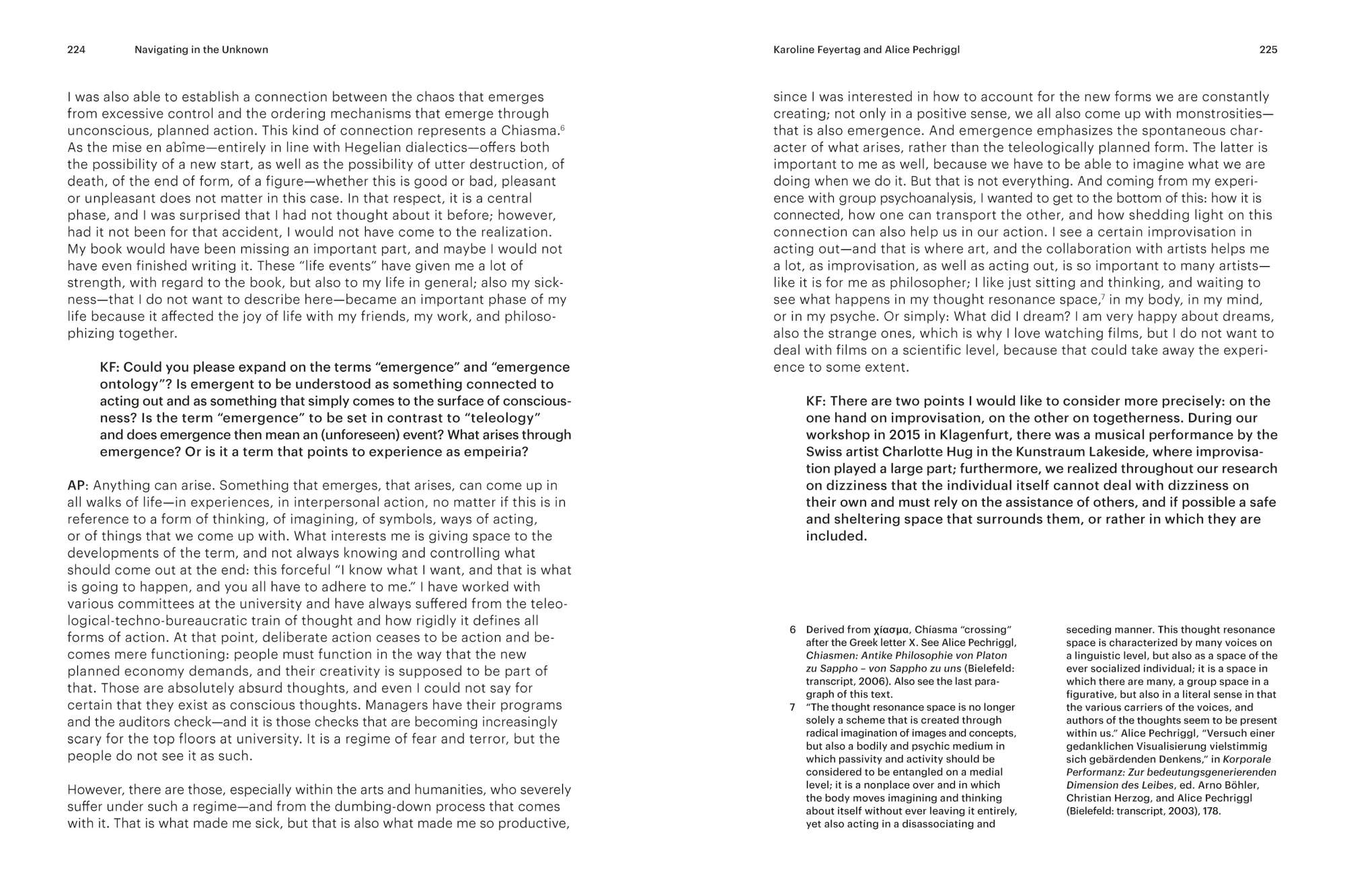

English
€22.00
“The feelings of dizziness and vibrations are closely related. Most people experience vibrations at one point or another, and some even frequently. The unmistakable feeling of the body vibrating can be overwhelming. More often, though, the feeling is less distinct, and the vibrations are ignored or brushed aside as being caused by something else, like a truck passing, the floor rocking, a sudden spell of wobbliness. In dance and ritual, vibrations are made visible through the shaking of the performers. This shaking, as well as the vibrations that are sensed but unseen, can be understood as the first step in a transformation: a signal from phantom bodies, lost memories, and new identities trying to wriggle their way out.”
— Joachim Koester, artist
“This book gets your head spinning. While being bombarded by daily reports of crises (both real and fictional), while destabilization has become normal and feelings of disorientation, fear, and dizziness have started to prevail in our everyday lives, the contributors to this book reverse this perspective by emphasizing that dizziness is a valuable resource. Dizziness—A Resource is the result of the cross-disciplinary research project initiated in 2014 by artistic duo Ruth Anderwald and Leonhard Grond. What can we gain when balance is lost? How can anarchy and dizziness empower us? How can a cognitive vertigo fuel our cognition? Artists, scientists, philosophers, and art critics attempt to answer these questions and to show us how to navigate a world marked by unpredictable change.”
— Małgorzata Ludwisiak, director, Ujazdowski Castle Centre for Contemporary Art, Warsaw
